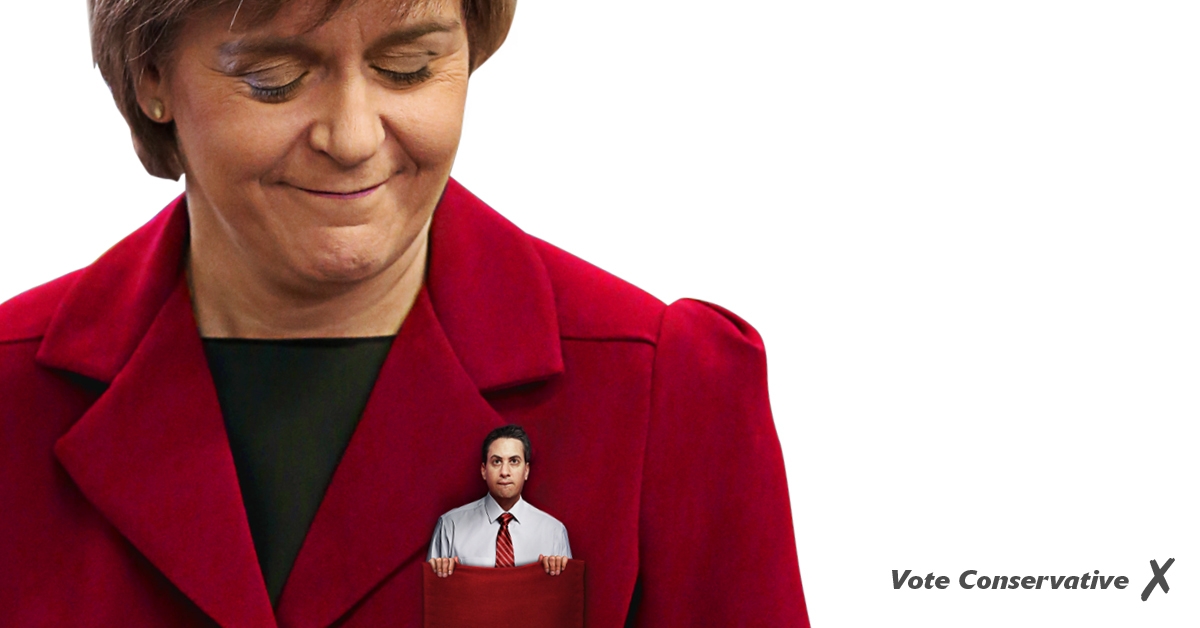I am sure, as Isabel says, that Tory warnings about the horrors – the horrors, Mabel – of a Labour-SNP arrangement at the Palace of Westminster are, as they say, cutting through with voters south of the border. It’s not as though the Tories have been pushing their own uplifting, positive, cheery, message for the country. Instead they have doubled-down on nationalist-inspired risk and chaos.
Why, Sir John Major (and others) chunter on about the appalling lack of democratic legitimacy any SNP-backed Labour government would have. Fiddlesticks and codswallop and a hundred other brands of prattling nonsense. Such a government might be less palatable than some; it would be every bit as legitimate.
That’s because, as you know, all that actually counts is being able to command the confidence of the House of Commons. Any government, of whatever hue, that can do that is an entirely legitimate ministry. Even if it is made up of or backed by people who give you the dry boak.
True, the SNP are not quite the same as other “regional” parties in as much as they seek to end the United Kingdom as we know it. Depending on their support is not quite the same, then, as requiring assistance from Ulster Unionists whose devotion to the realm may have a price but is also unquestionable.
Nevertheless, no-one in other parts of the UK has a chance to vote for the DUP or any of the other strands of Unionism just as folk furth of Scotland lack the opportunity to endorse or reject SNP candidates.
In any case were the SDLP still a force with which to be reckoned and were they to make the difference between a Labour minority and a Labour majority would anyone really object? I doubt it and not just because the SDLP informally took the Labour whip even though, formally, they favoured the further dismemberment of the United Kingdom.
Anyway, the bigger thing is that there are some decisions that are taken collectively as the United Kingdom and the selection of a parliament is one such thing. That’s one reason why, despite so much squawking outrage in Scotland, Margaret Thatcher’s ministries were perfectly entitled to rule Scotland. They lacked numbers but not legitimacy for they commanded a majority where it counted: Westminster.
That, of course, caused some political problems but Thatcher’s legitimacy was no more compromised than Prime Minister Miliband’s will be in the probable event he fails to carry a majority of English seats. There may be four separate elections this May but it is one nation doing the choosing.
In any case, Tory concerns about weaselly Nationalist influence at Westminster are overdone. It is true that the SNP will make some mischief and equally true that they will make some impossible demands to keep their grievances fattened but, look, they are not actually going to be running the show.
Not least, you know, because unless something remarkable happens, they will not actually be in government. There will be no coalition. There may not even be a formal agreement on the general terms upon which the SNP are prepared to offer a minority Labour government their support.
Nor, for the benefit of slow-learners, is it obvious Labour need to offer the SNP very much of anything at all. There will, in any case, be little need for the SNP to extract sweeties for Scotland when a desperate Labour party will be all too happy to shower some affection upon North Britain knowing, as they do, they have just 12 months to prove their relevance before the next Holyrood election.
Besides, if the Tory party really objects to SNP influence at Westminster then the power to eliminate that influence lies with, yes, the Tory party itself. There is no requirement that the Conservatives oppose everything a Prime Minister Miliband proposes. They could agree to abstain on his budget, for instance, and by doing so ensure there’d be no need to crawl to the SNP at all. It’s up to them.
Of course a government reliant upon those ghastly Jocks would be just the thing to rankle the quiet people of England in Peterborough, Stevenage and Slough but there you have it. Them’s the breaks. Sometimes it is necessary to lump them.
It is not, on the other hand, necessary to grant any credit to a Conservative and Unionist party that increasingly appears to be taking its cue from Charles Churchill and John Wilkes.
Are the Tories stupid or are they cynical? The answer, naturally, is both.







Comments